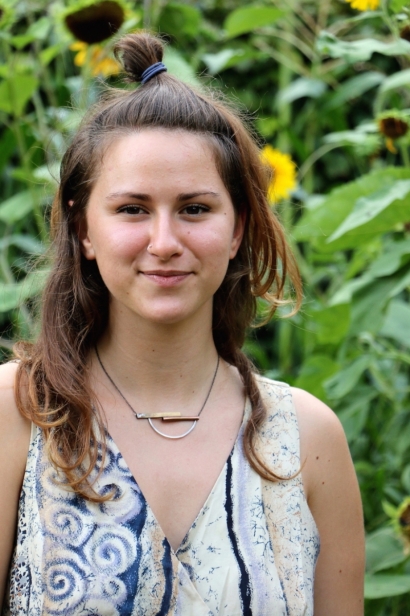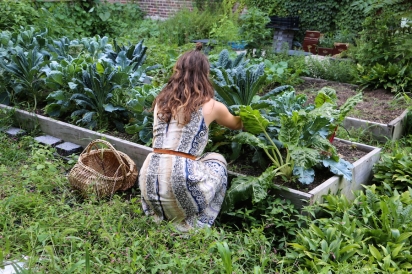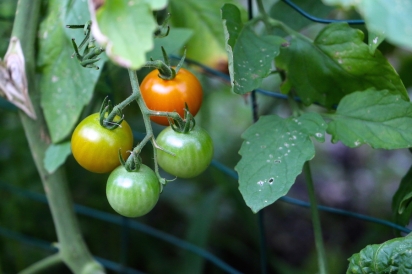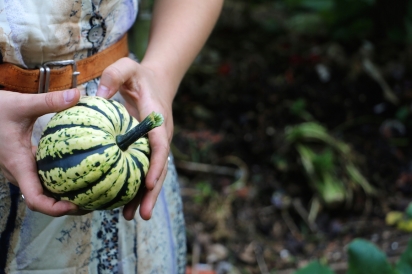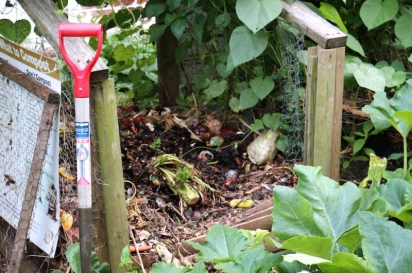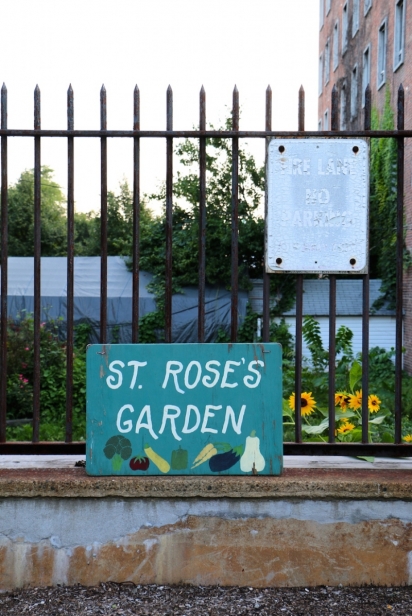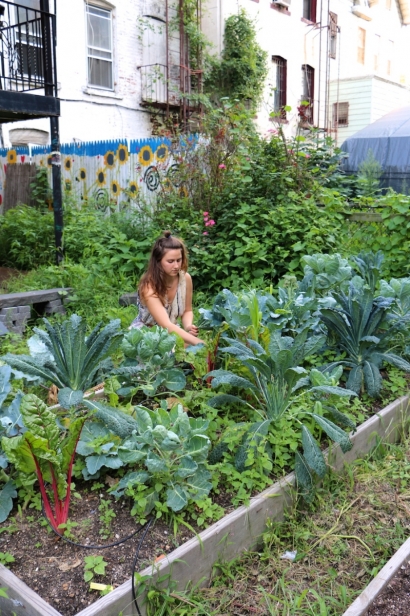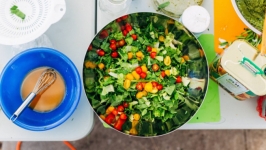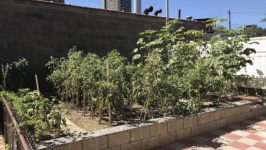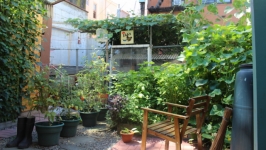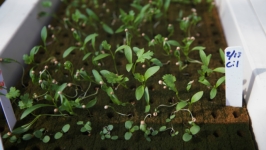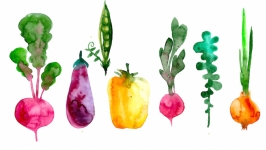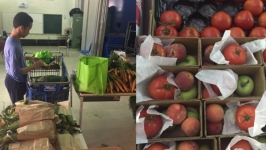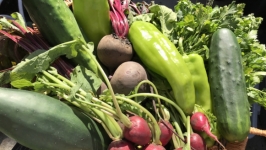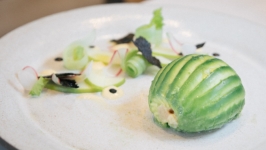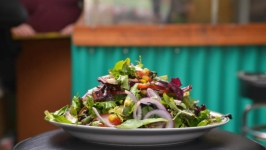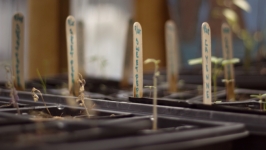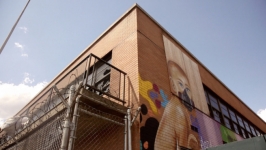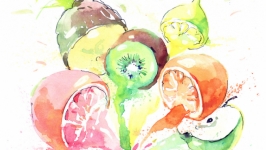Greening Fordham
It’s a quintessentially endless late summer evening and a dozen or so students are gathered in Fordham University’s St. Rose’s Community Garden for a potluck dinner.
A few cans of craft IPA and a half-eaten blackberry cobbler rest on a scrap of wood that was once a fence, repurposed as a table. Surrounded by lush edibles, barefoot students fill plates from their own kitchens with the goods: roasted balsamic veggies, pesto gnocchi, chana saag, sliced watermelon, salad thrown together from just-picked kale and tomatoes.
St. Rose’s Garden exists like a sidewalk-crack dandelion, mildly nostalgic of a ’70s California hippie commune. Everything about it—from the way it hides nestled in the backyard space between Belmont and Cambreleng Avenues, to its wildly overgrown beds, to the way students eat side-by-side on the weed-cushioned ground. A subtle tone of rebel against institution and hierarchy.
Nothing about this potluck scene would give reason to pin one, much less five, executive positions on Arielle Brender, the student in the thrifted wrap dress who loosens her belt as she helps herself to another slice of watermelon. Yet her credits include “VP of sustainability under United Student Government, president of Students for Environmental Awareness and Justice and site manager and permaculture director of St. Rose’s Garden,” she lists. She tosses a watermelon rind into the compost bin: “Oh, also leader of the Sustainable Food Practicum in the Social Innovation Collaboratory.” And philosophy and environmental studies double major from Millburn Short Hills, New Jersey.
These basic details are helpful, but capturing the dynamo that is Brender is a near impossible undertaking. She’s a food-justice advocate who spent a semester at the New York Botanical Garden’s Edible Academy teaching youth about agriculture; a foodie who worked as a line cook at Brooklyn’s Pies ‘n’ Thighs at just 17; a farmer who spent last fall studying permaculture and agroforestry in the western mountains of Panama; and a former reality TV star. (Her semester in Panama was filmed by Viceland for the docu-series “Jungletown.”)
Brender has that incendiary combination of tireless passion and hope unique to young people freshly discontent with the world around them; she cares a lot about a lot of things. But the thing Brender cares about most? Sustainability—the notion that investing in sustainable diets and habits can make us and our planet healthier.
“I want to make sustainability sexy.’ That was my platform during the United Student Government election,” she says. “I want Fordham to recognize how empowering sustainability can be. I want students to incorporate that into their habits and their perception of the world.”
As site manager and permaculture director of St. Rose’s, Brender has the power to do just that: “We’re growing broccoli, kale, Brussels sprouts, seven varieties of corn, cilantro, tomato, basil, cucumber, squashes, rutabagas,” her list goes on. “I want to make this garden as diverse as humanly possible.”
St. Rose’s isn’t about profit, she insists. Students are free to harvest as they please. It’s about introducing students to growing. “Once you grow an edible for the first time your perception of eating is forever changed.”
The garden is just one of Fordham’s sustainability efforts. There’s campus-wide recycling; Fordham Flea Weekend, when students shop and donate thrifted clothes; Sustainability Week filled with potlucks and documentary screenings; and new plant-based options in the dining hall—all fruits of the efforts of Brender and the sustainability committees she represents.
But Brender is far from satisfied: “I want to double our recycling diversion rate by the time I graduate,” she says. “In the Social Innovation Collaboratory we’re working on opening a campus thrift store, we’re adding recycling education to freshmen orientation, we’re talking about a sustainable business fair.” Brender suggests there are ambitions brewing in the Collaboratory for an environmental student co-op. She discusses student government efforts to introduce on-campus beekeeping and the administration roadblocks in the way.
“Admin has been really stingy with the bees,” she says. “But,” she smiles wryly, “it might just … happen.” She attempts a look of obliviousness, an impossible task for the acutely aware Brender: “Ask for forgiveness, not permission. I learned that from Carey Weiss, a mentor of mine.” Weiss is Fordham’s Social Innovation Collaboratory’s director.
Institutions like Fordham need change makers like Brender. They need edible-clad headquarters of innovation, late-summer potlucks and women in thrifted wrap dresses with hands full of seeds and nailbeds full of soil. Fordham—and the world beyond its gates—need big thinkers who think locally harvested vegetables and compost bins are sexy, and who aren’t afraid to ask for forgiveness instead of permission.



